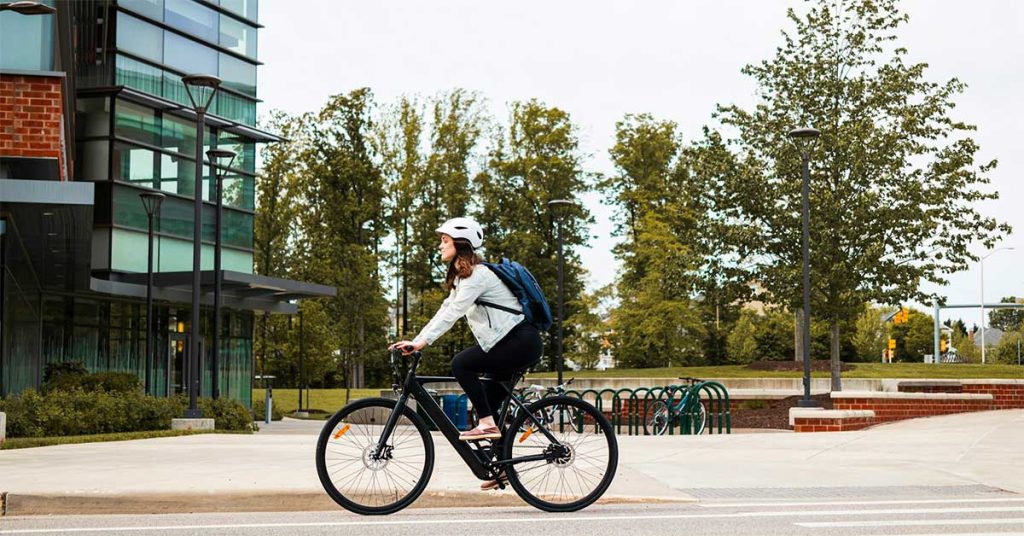As individuals put more value on sustainability and the government develops policies to demand further action, companies will have to make use of every opportunity to become more sustainable. An area where this is perhaps overlooked is how employees travel to work.
A Green Travel Plan (GTP) is often required during the development application process and details the strategies to achieve more sustainable travel modes to/from a development. The GTP can be seen as just another formality or as an opportunity to promote sustainability from the early stages of a new building.
The GTP includes targets for transport mode share and the actions required to achieve them. The plan can propose aspects such as upgrading pedestrian infrastructure leading to the development or improving end-of-trip facilities for cyclists. The measures change according to the particularities of the development and land-use.
Recently, the AFR reported that e-bikes might be a strong ally for companies looking into reducing their carbon footprint. We think this is a good example of a non-traditional initiative that can lead to reaching green travel targets.
There is also a plus with the uptake of e-bikes, it can encourage workers who would otherwise continue to work from home to get back to the office. As one of the deterrents to returning to the office is the added commuting time, e-bikes offer an alternative to public transport without the costs associated with motor vehicles (parking, tolls and petrol). The advantage of e-bikes over push bikes is that the first increases the distance people are willing to cycle from up to 7km to up to 10km radius.
Companies in the US have been seeing employees cycling to work as an important contributor to meeting their carbon reduction targets. Tesla, for instance, even pays a daily incentive to employees who cycle to work.
The AFR article cites two Australian businesses that have been actively encouraging employees to adopt cycling. One offered 4-week trials of e-bikes to employees and the other organised bikes to any employee willing to cycle to work.
We hope to see more Australians traveling to work by sustainable transport modes. According to ABS data (2021 census), the proportion of commuters driving in greater Capital Cities are:
- NSW: 34.5%
- VIC: 46.8%
- QLD: 55.5%
- SA: 63.8%
- WA: 62.5%
- TAS: 60.6%
- NT: 68.5%
- ACT: 59.6%
The data indicates that there is a lot to be done to reduce car reliance in all states. To achieve greener cities, we need initiatives on public, private and individual levels.

